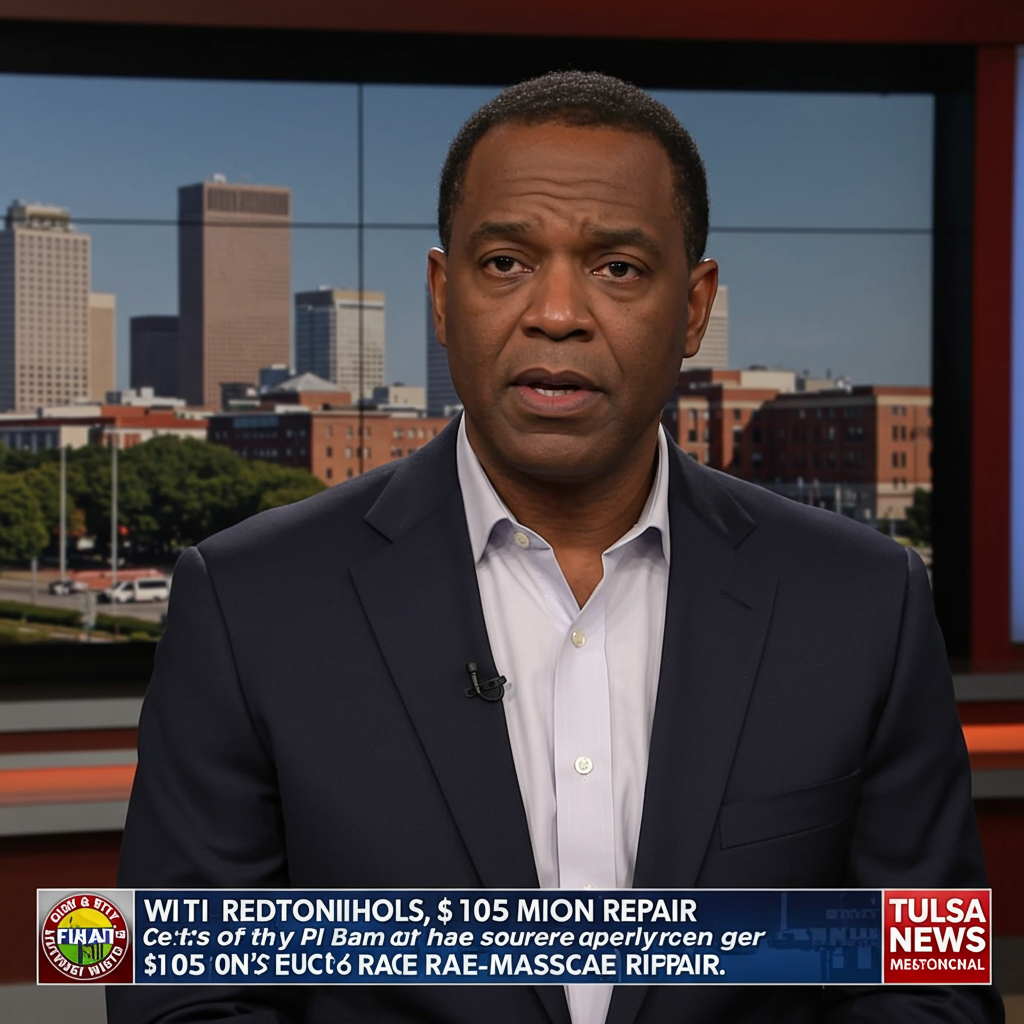Tulsa Announces $105 Million “Road to Repair” Initiative for 1921 Race Massacre
Tulsa, Oklahoma, is embarking on a landmark effort to address the enduring devastation caused by the 1921 Tulsa Race Massacre, one of the most horrific acts of racial violence in American history. Under the leadership of Mayor Monroe Nichols, the city’s first Black mayor, a comprehensive $105 million reparations package is being prepared.
Dubbed the “Road to Repair,” this initiative focuses heavily on community redevelopment aimed at rebuilding the historic Greenwood District, once a vibrant economic hub known globally as “Black Wall Street.”
Addressing Historical Injustice Through Community Investment
The plan, announced during Tulsa’s first official Tulsa Race Massacre Observance Day, intentionally steers away from direct financial payments to individual descendants or the two remaining known survivors of the attack. Instead, the funds, raised through a private entity called the Greenwood Trust, are earmarked for strategic investments designed to foster long-term economic and cultural restoration.
Key allocations within the $105 million goal include:
$24 million designated for a housing fund.
$60 million allocated to a cultural preservation fund, with a specific focus on revitalizing the area and “reducing blight.”
- A legacy fund allowing the trust to acquire and develop land within the district.
- https://www.bbc.com/news/articles/c9dqnz37v1wo
- https://www.bbc.co.uk/news/articles/c9dqnz37v1wo
- https://radiojamaicanewsonline.com/local/tulsa-plans-105m-in-reparations-for-americas-hidden-massacre
- https://www.aol.com/city-tulsa-plans-105m-reparations-185139395.html
The Greenwood Trust aims to have the full $105 million in assets secured or committed by June 1st. While the plan itself doesn’t require city council approval, the council is expected to authorize the transfer of any city-owned property to the trust, which is considered highly likely.
The Deep Scars of the Massacre and Subsequent Harms
Mayor Nichols underscored that the 1921 massacre, a brutal event where a white mob burned Black Wall Street to the ground destroying over 1,000 homes and businesses and killing an estimated 300 Black residents, wasn’t just a historical tragedy. He described it as a “stain on our city’s history” that was deliberately “hidden from history books” for decades.
Crucially, he highlighted how the physical destruction was compounded by subsequent intentional economic harms. These included the strategic building of a highway designed “to choke off economic vitality,” persistent “perpetual underinvestment,” and deliberate “intentional acts of redlining” that systematically denied Black residents access to critical home and property loans. Mayor Nichols stated that the massacre “robbed Tulsa of an economic future that would have rivalled anywhere else in the world,” and that the “Road to Repair” represents the necessary “next big steps to restore” what was stolen.
A Unique Approach in a National Context
Tulsa’s “Road to Repair” stands out as the first large-scale municipal plan in the United States specifically committing significant funds to address the impact of a single, racially motivated attack.
This initiative comes at a time of complex national conversations around reparations and racial equity. While direct reparations for slavery and subsequent discrimination remain a divisive topic, other cities and states have taken varied approaches. Evanston, Illinois, for example, became the first city to offer reparations to its Black residents in 2021 through housing-related assistance. California has apologized for past discrimination and approved some non-direct payment initiatives. Conversely, Maryland’s governor recently vetoed a measure to create a commission dedicated to studying reparations in the state.
The timing of Tulsa’s announcement also coincides with reports of diversity, equity, and inclusion (DEI) practices being rolled back in the US government and reduced by some major corporations, making Tulsa’s commitment particularly noteworthy.
The plan also unfolds after the two known surviving individuals of the 1921 massacre, Lessie Benningfield Randle and Viola Ford Fletcher, lost a lengthy court battle seeking direct reparations last summer. Tulsa’s focus on private funding and community-wide redevelopment through the Greenwood Trust represents a distinct model in the ongoing national effort to acknowledge and repair historical racial injustices.



